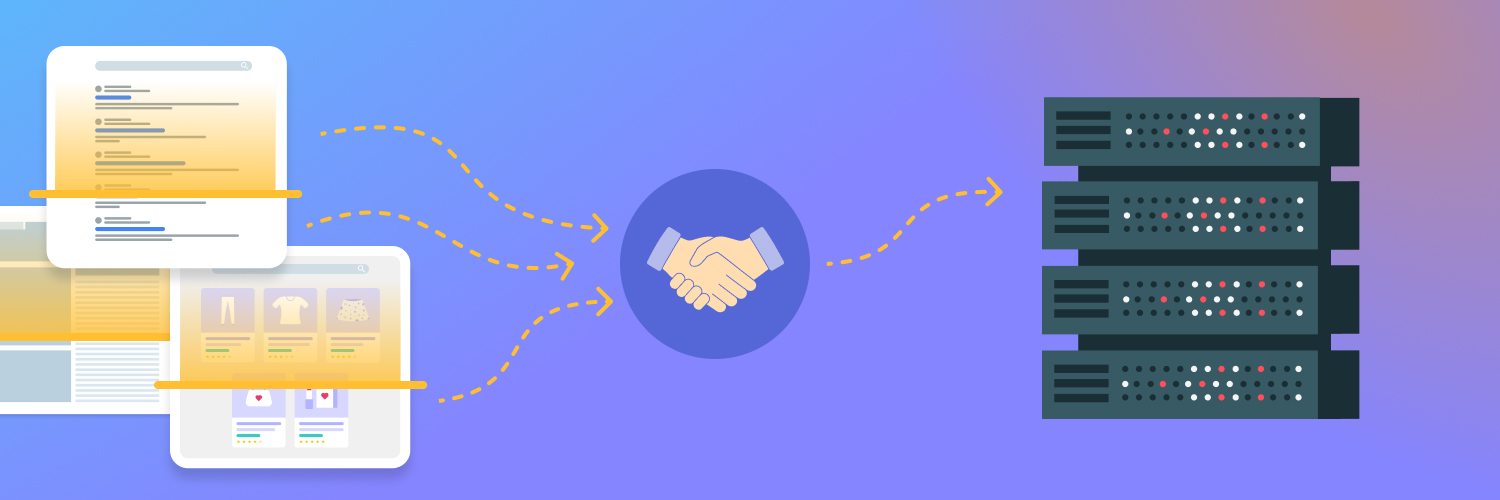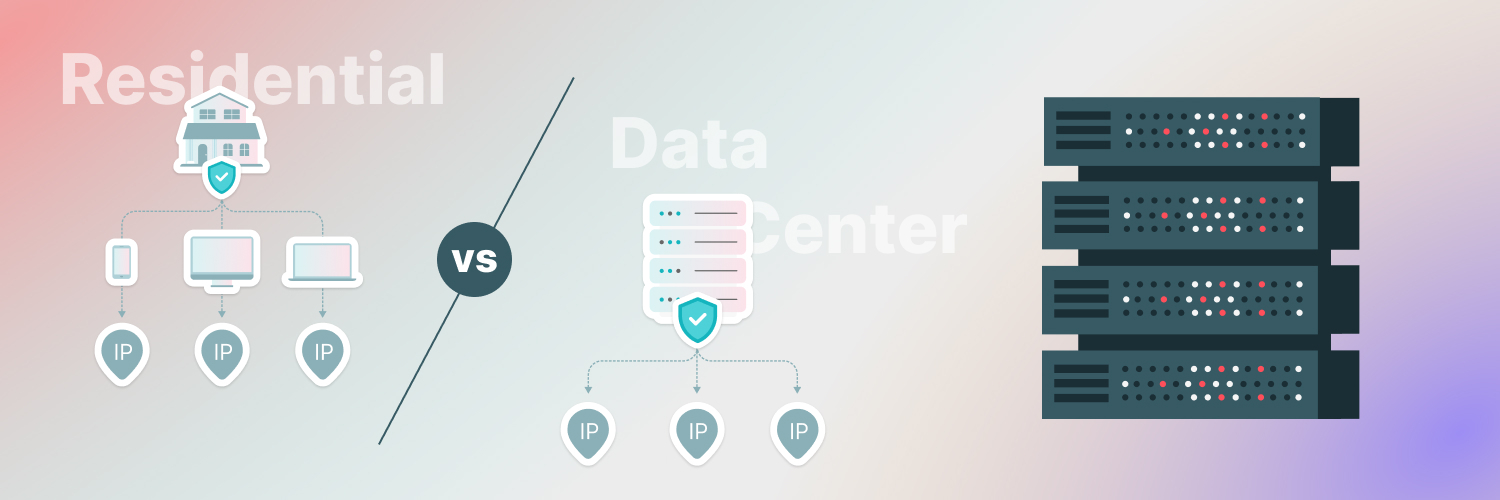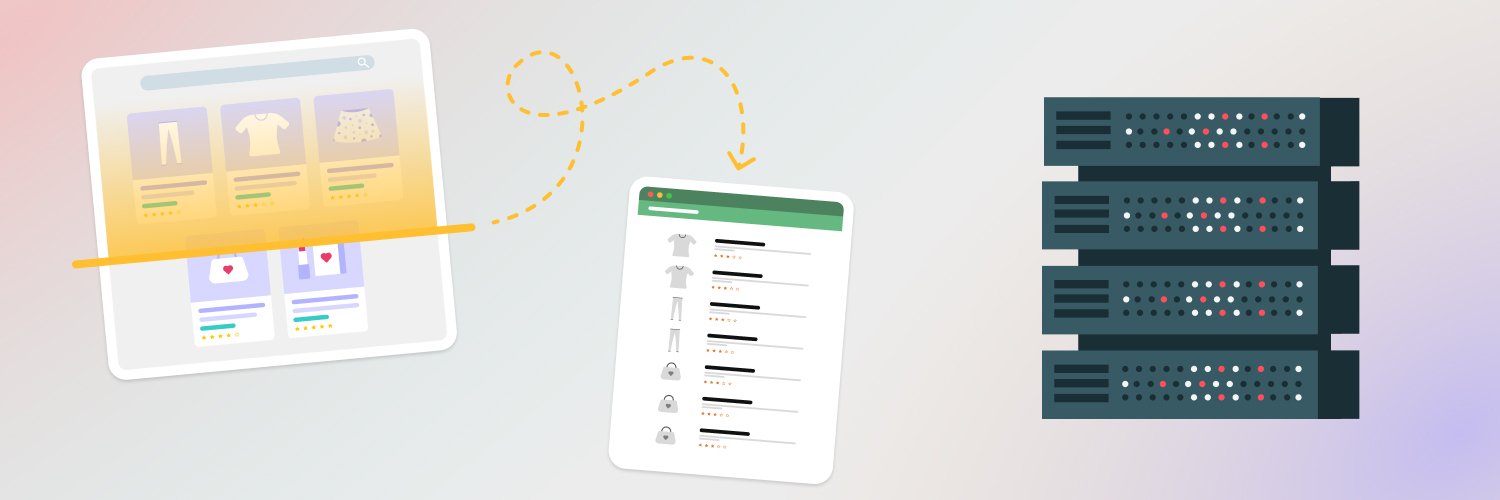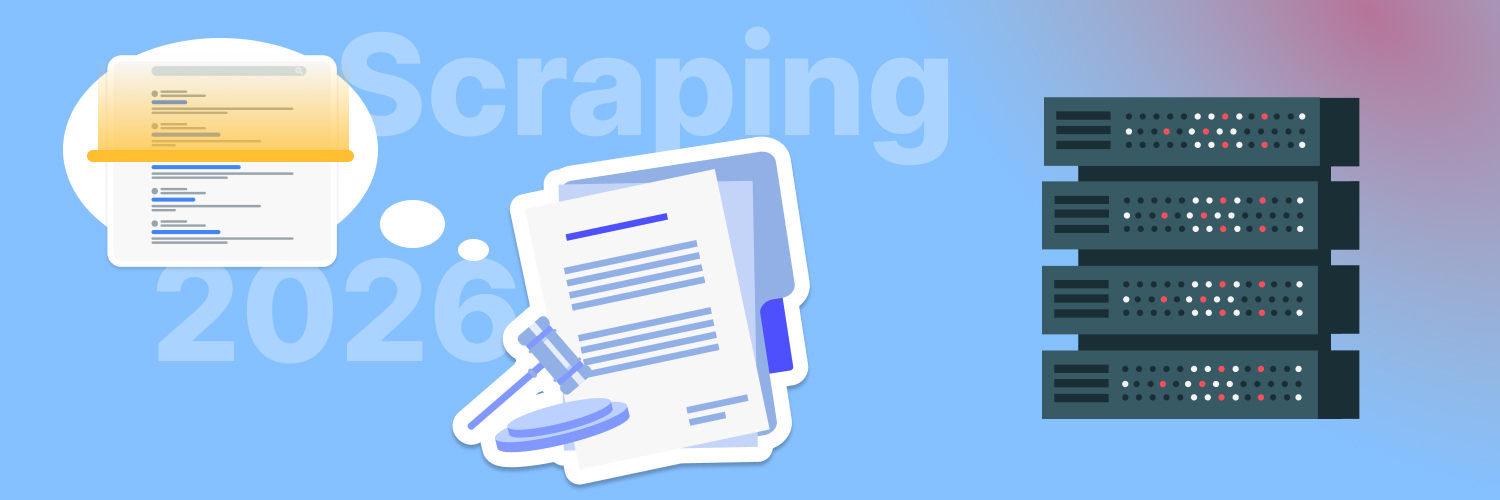The Ultimate Guide to Using Web Scraping to Compile Travel Data
After being stuck at home for so long during the pandemic, people are eager to get back out into the world and start traveling again. According to a recent McKinsey survey, a travel boom is in the making — and trip reservations are rising.
Regardless of what service you provide on the customer travel journey, everyone from large aggregators of airline fares to hosts of part-time vacation rentals can benefit from data scraping in the industry. In this article, we’ll cover how and why businesses in the travel industry should use web scraping as an integral part of their corporate data strategy.
If you’re already familiar with aspects of this topic, feel free to use the table of contents to navigate to the sections that are most relevant for you.
Scrape at Scale With Chromium
Playwright-compatible. Self-hosted. Built for real infrastructure.

The Benefits of Travel Scraping

The savvy traveler has a plethora of applications to choose from when planning their trip. There are review sites for every phase of the journey — and no detail is too small to include. Was the driver on the airport shuttle polite? Were the pillows in the hotel room flat? Was the server at the restaurant friendly?
All the information is there for anyone who is willing to scroll down far enough. But it’s not sufficient to find the most luxurious accommodations with the best service anymore.
Travelers used to need a travel agent because they couldn’t find the hidden gems or great deals without them. Now, the problem is flipped: there’s an information overload. With influencers posting nonstop on social media, blogs, and review sites, there’s no shortage of travel inspiration — and travelers want to know they’re getting the best deal on all of it. You know all this information is crucial to boosting your business so you can target the right customers and keep up with the competition. But how do you find it without spending hours sorting through each individual site and indexing page information?
Web scraping allows you to access all of this data, from prices and reviews to available itineraries, and leverage it for your business. Whether you’re compiling data to drive your new marketing campaign or trying to figure out the optimum rate for your vacation rental, web scraping will give you the insights you need.
What Travel Data Is Most Useful?

The data that will most benefit your business depends on the type of service that you provide. Scraping data is a process that you learn by doing it. As you collect and analyze data, you’ll be able to hone in on exactly what you need and refine your strategy. However, there are some types of data that go beyond just hotel listings and a flight scraper — which will benefit most companies in the travel industry.
Pricing
While price isn’t always the driving force behind traveling decisions, it is an important metric to follow. If your price is higher than your competitors’ but you provide options that are more important to your customers (another data point you can discover with scraping), you don’t have to compete on price alone. If price is the driving factor for your users, however, you can tap into that by using a cheap flight scraper and offering across-the-board budget options.
Location
Obviously, location is extremely important information for anyone in the travel industry. You’ll need to know what flights are going where so you can offer airline tickets to your consumers. You may be putting together packages to offer your customers or recommending attractions in a specific locale. You’ll need to know what restaurants and attractions are nearby and how far they are from lodgings or other attractions.
Customer sentiment
Collecting data on customer sentiment can go far beyond just an average of starred reviews. By scraping specific keywords, you can find out what people who rate a specific destination highly have in common. This information can drive your marketing and help ensure you’re reaching the right customers.
You can also gain insight into what your customers value and jump ahead of the competition by providing it to them. For instance, if you learn that most people believe that new experiences are one of the most important benefits of traveling, you can target your marketing by highlighting the novel attractions you can offer.
Brand monitoring
Web scraping offers you the opportunity to stay on top of your brand mentions across the internet. No matter what your travel-related offerings are, you need to understand what your customers are saying about you. Monitoring your brand will allow you to make data-driven decisions about the best direction for your business. You’ll be able to see what you’re doing right, what you need to work on, and what your customers want from you. Following your mentions also lets you put out small fires before they spread and you go viral for the wrong reasons.
Market research
Understanding developing trends in your industry is crucial to your company’s success. Data scraping can help you see and leverage emerging issues to get ahead of your competition. Analyzing your data will show you holes in your market that you can fill. When you see values such as sustainability turning up repeatedly, there’s an opportunity for you to highlight low-waste travel options or eco-friendly companies.
Building a Travel-Industry Web Scraper

Before you can take advantage of the massive amounts of data available in the travel industry, you have to collect it. There are many free and paid web scrapers available, but if you’re familiar with Python, you can easily build a travel scraper yourself. The exact process will vary depending on the data you want and the site you’re scraping, but we’ll run through the process of building the best flight scraper using Python.
For web scraping applications such as building a flight scraper, you’ll need to download Selenium. Selenium is a Python package that is built for automating web applications. It lets you automate tasks that a human would normally perform, such as clicking buttons, filling out forms, and requesting information.
In addition to Selenium, you’ll need the following:
- ChromeDriver, which gives you a platform to perform tasks in Chrome
- Pandas for analyzing data
- Time and DateTime for classes to work with date and time
Once you’ve imported the libraries you need, you’ll need to set variables for the data you want to scrape. Define a function to choose the type of ticket you want using the tags and IDs. You can find these by right-clicking and using “Inspect Element” to check them. Define functions for all data that you want related to flights, such as:
- Airline
- Departure time
- Arrival time
- Layovers
- Price
- Departure airport
- Arrival airport
Next, you’ll need to define the function that will click the search button. It’s a good idea to include a delay here to be sure your results have a chance to load.
Once you’ve collected the data, you need to load it into a Pandas DataFrame using the following steps:
- Create variables for all of the flight data you defined above and store them as lists.
- Find all of the elements for an attribute.
- Store them in the list variable.
- Put the lists in the DataFrame as columns.
- Save the data in a CSV file to your chosen folder.
If you want to go beyond building a basic flight scraper and figure out how to use big data for flight price prediction, here is a good resource that uses publicly available data from Kaggle.
Why You Need Proxies for Travel Scraping

Regardless of what type of data you’re scraping, one problem you will run into quickly is that most websites have measures in place to prevent web scraping. The main benefit of web scrapers is that they’re much faster than humans at making requests from websites. Because of this, they’re easily identified as robots. Some websites have valid reasons for not wanting to be scraped, like blocking bots with malicious intent or preventing server overloads and downtime. Others simply don’t want their competitors accessing data for market research.
To prevent web scraping, many websites will ban an IP address if they suspect bot-like activity. This is where proxies come in. A proxy IP address will hide your real IP address. Simply substituting one proxy IP address for another won’t be much help when data scraping, however, because your proxy IP address will also get banned as soon as a website detects inhuman activity.
The solution is to have a pool of rotating proxy IP addresses. With multiple proxies, your scraper can use a different one each time it sends a request. This makes your requests seem more like they’re coming from a human user. There are several different types of proxies that you can choose from when data scraping.
Types of Proxies

When you start looking into different kinds of proxies, it can seem overwhelming. Although it can be a bit complicated, understanding the different types of proxies and their best use cases is important to the success of your data collection efforts. Proxies can be categorized based on where they originate and how many people have access to them. Let’s start with the point of origination:
Data center proxies
As the name implies, data center proxies originate in a data center. They’re associated with data centers rather than physical addresses. Because of this, it’s much easier for anti-scraping programs to detect and ban them. Some websites go further and will ban an entire subnet associated with a suspicious data center IP address.
Data center proxies are cheap and plentiful, which is their main advantage. These proxies can be useful for some projects, but they’re not the best choice for web scraping and gathering data in large quantities. In fact, many sites that you will want to gather travel data from block all data center IP addresses, making them a nonstarter.
Residential proxies
Residential proxies are associated with physical addresses. They’re issued by internet service providers (ISP) and look real to anti-scraping programs because they are real. This is the type of IP address you likely have at your home. Residential IP addresses are associated with a location. So if you’re working at home on your laptop, you’ll be using one IP address. At the office, you’ll use a different IP address even if you’re using your same laptop.
Residential proxies are the best option for web scraping because they look like the IP addresses of normal users. They’re from the real devices of real people, who (when sourced ethically) are compensated for that use. They’re more expensive than data center proxies, but they’re worth it since ultimately they’re more efficient so you’ll have less downtime due to bans.
Shared, semi-dedicated, and dedicated proxies
In addition to being classified by their point of origin, proxies can be classified based on who has access to them.
Shared proxies are shared among many users. This is problematic because if someone else is using the same IP address you are and gets banned from a site, you’re banned as well. This is known as the “bad neighbor” effect. Another problem with shared proxies is that having multiple users can negatively impact your performance, resulting in a bloated, slow experience. Shared proxies can also pose a security risk to your data.
Scrape at Scale With Chromium
Playwright-compatible. Self-hosted. Built for real infrastructure.

Semi-dedicated proxies are a kind of shared proxy, but they’re limited to a number of users. A good proxy provider will vet the users on a semi-dedicated proxy pool, limiting the “bad neighbor” effect. These proxies are usually shared among two to five users, reducing the cost as well as the security risks.
Dedicated proxies are reserved for you alone. You don’t have to worry about performance or security since you’re the only one with access to your dedicated proxies. Dedicated proxies are the most reliable but also the most expensive option.
Final Thoughts

Choosing a reliable, ethical proxy provider is essential to the success of your travel scraping projects. Rayobyte is committed to your success. We have the highest industry standard for the ethical sourcing of residential proxies. We make sure that our end users are completely clear on how their IP addresses are being used, and they have the freedom to opt out at any time. If your proxy provider isn’t completely transparent about how their residential IP addresses are sourced, you shouldn’t be doing business with them.
In addition to providing the most reliable residential IP addresses, at Rayobyte we provided unmatched customer service. Our senior engineers can expertly deal with any issues that could cause you downtime. We are available 24/7 to answer your questions and provide whatever support you need. Reach out to our team to find out how we can help you.
The information contained within this article, including information posted by official staff, guest-submitted material, message board postings, or other third-party material is presented solely for the purposes of education and furtherance of the knowledge of the reader. All trademarks used in this publication are hereby acknowledged as the property of their respective owners.



